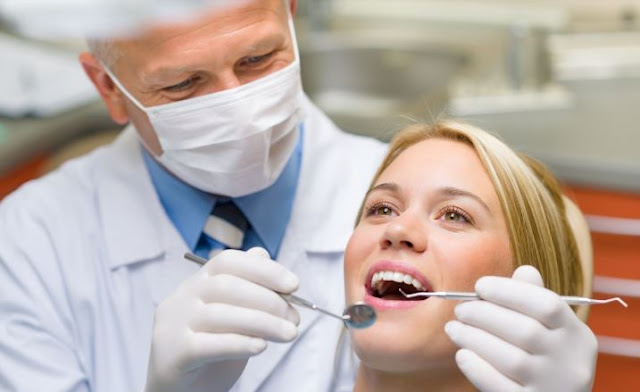You sit down at the computer to do some research, dreading the thought of convincing your teenager that braces are a good idea. As you read through dentistry sites, you start to see there’s a new technique. Using what’s called Invisalign on teeth is a lot different from the old metal braces with wires you’re used to. As you read they’re great for adults, you start feeling your own teeth with your tongue. Maybe the best way to convince is by doing it yourself….
It’s your teen’s first high school picture day, and you can tell by the nervous energy in the room the stakes are high. You suggest a practice smile. You keep a cool look on your face, but as your kid grins, you worry you’ve passed on your genetic predisposition for crooked teeth. As you usher your teen out the door, you know they’re fine for now, but who knows what the future will hold.
You Hardly Know They’re There
Being made of clear, smooth plastic means your aligners are practically invisible when worn—a much-needed selling point when choosing them for your teenage daughter or son. No one wants the glint of metal in every picture, especially as a young adult.
If you’ve put off straightening your own teeth until adulthood, you’ll appreciate the invisible aligners as you straighten your teeth without shouting to the world and every partner at the big business meeting that you’re doing it.
Clear Expectations
Finally, the whole Invisalign process is computerized, meaning you’ll know what’s going to happen and how long it’s going to take. A certified Invisalign provider will sit down at your consultation and decide if Invisalign is good for you and construct a personalized plan that accounts for your individualized teeth movement. Sometimes with a special 3D scanner (iTero), they can generate a treatment simulation of the potential end results and discuss it with you.
Afterwards, you’ll go through a set of x-rays, pictures, and digital impressions to shape the aligner. A 3D virtual representation of your treatment plan will show you how your teeth are expected to move at each
benefits of invisalign treatment. You’ll know exactly how long they’ll need to be worn before your teeth are straightened. Another helpful argument when convincing a teen is being able to circle a day on the calendar that says, “Alignment is complete!”
Using Invisalign on teeth is a great alternative to traditional braces, perfect for your high school teen—or even yourself! They’re comfortable, invisible, and easy to understand, meaning it’s never been easier to convince your teen it’s time to straighten those teeth.
Comfort Equals Safety
Traditional braces mean a more demanding installation and removal by an orthodontic specialist. Also, you must watch for dietary restrictions to avoid breakage of the braces. Another concern is emergencies, whether from a broken bracket or a poking wire. Last but not least, your brushing and oral hygiene is way more difficult with all that hardware in your mouth. When those braces are in, they’re in until the braces run their course.
But using the
best invisalign dentist near me on teeth means the aligner can be popped out before saying, “Cheese!” and popped back in—quick and easy. And while in the mouth, the smooth plastic means you’re hardly aware the aligner is there. Those delicious spinach-heavy meals are no longer a problem, as you can simply remove the aligner while eating then replace it after. You also can brush and floss normally without the need for a full set of tools to do a proper job.
The added bonus to this comfort is that it makes the whole process a lot safer, too. No more metal bits mean your child’s mouth and gums aren’t being irritated, scratched, or punctured.
What Is Invisalign?
Invisalign aligners are an alternative to traditional braces. Instead of wrapping your teeth in bits of metal and wire, you wear a series of custom-made aligners, or trays, that will gradually shift your teeth into their desired correct position.
The aligners are made of smooth, clear plastic and each tray is easily removable for brief times, such as during eating, drinking, or teeth brushing.




Comments
Post a Comment